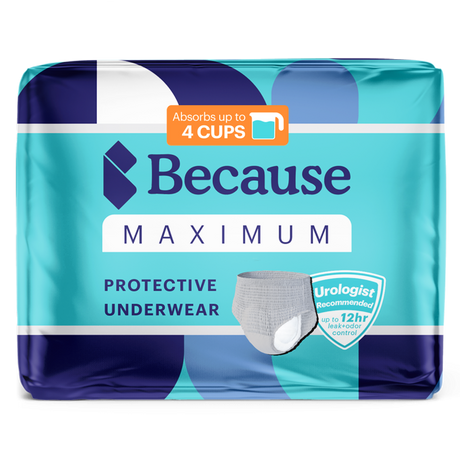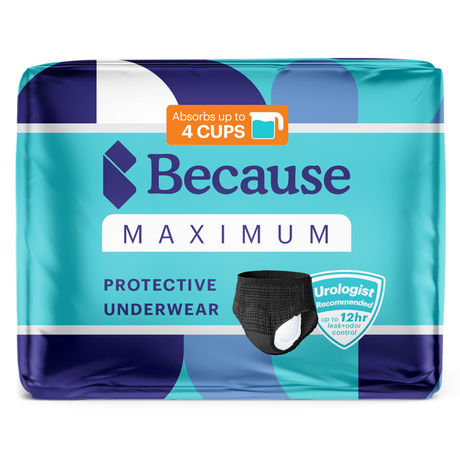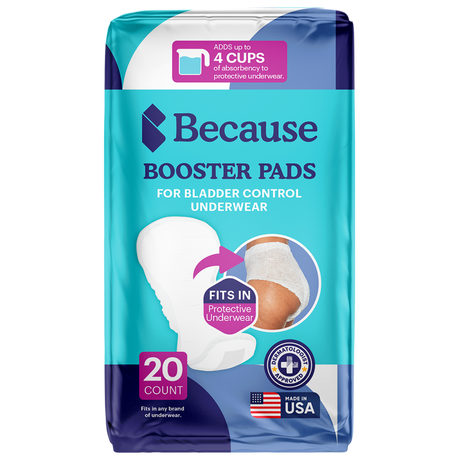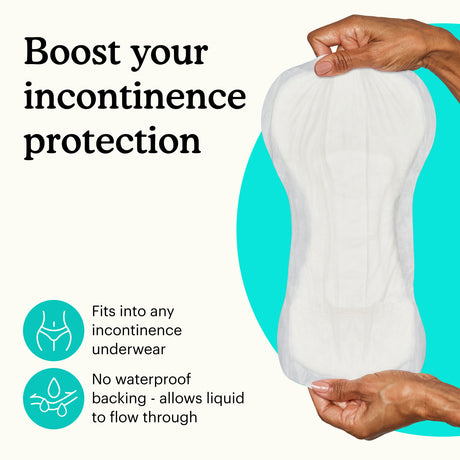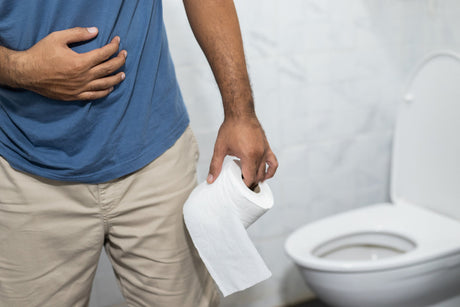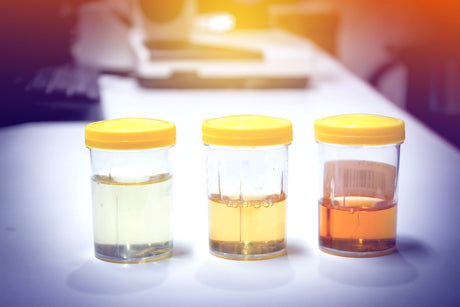As many as 5 million women in the U.S. suffer from polycystic ovary syndrome or PCOS. The medical condition is one of the leading causes of infertility and can cause a wide range of symptoms. If you have PCOS, you may wonder if bladder issues like frequent urination and urinary tract infections (UTIs) are among them. Read on to explore whether there is a PCOS-UTI connection and find out what you can do about bladder conditions.
Does PCOS Cause Frequent Urination?
Although PCOS is a common condition, doctors don’t fully understand its causes and effects yet. While women who have PCOS may develop recurrent urinary tract infections (UTIs) and experience lower urinary tract symptoms like urinary incontinence and frequent urination, there is no evidence that PCOS and frequent UTIs are directly connected.

Understanding PCOS
PCOS happens when a woman has abnormally high levels of male hormones. Called androgens, these hormones include testosterone. Research has yet to identify the root cause of the high levels of androgens associated with PCOS but has found that certain people are more at risk for developing the condition.
Some risk factors for PCOS include:
- High levels of insulin
- Family history of PCOS
- Obesity
- Diet high in calories, sugar, and/or saturated and trans fats
- Lack of exercise
- Stress and anxiety
Abnormal hormone levels associated with PCOS can give rise to many symptoms, including:
- Irregular periods, such as skipping periods
- Abnormally long menstrual cycle, such as getting periods more than 35 days apart
- Hirsutism, excessive hair growth on the face and body
- Oily skin
- A form of hair loss known as male-pattern baldness, which causes hair to thin at the crown of the head and along the hairline
- Weight gain, particularly around the belly
- Acne breakouts
- Formation of cysts on the ovaries
- Skin tags on the armpits or neck
- Dark or thickened skin on the armpits, under the breasts, or on the back of the neck
As previously mentioned, PCOS is the most common cause of infertility related to problems with the menstrual cycle. Some women of reproductive age don’t find out that they have PCOS until they undergo fertility testing.
Doctors typically diagnose PCOS in patients by performing a physical exam of the reproductive organs called a pelvic exam and by ordering an ultrasound and blood test.

Common Causes and Symptoms of UTI
A urinary tract infection happens when bacteria gets introduced into the lower urinary tract. Often, this happens via the urethra, the tube that carries urine out of the body. From there, the infection can spread to the bladder and sometimes can progress to the kidneys. A bacterial infection of the kidneys can lead to permanent organ damage and blood infections, making it important that people with urinary tract infections are evaluated for possible treatment.
Once bacteria begin to reproduce in the urinary tract, the immune system releases chemicals to fight it, and inflammation develops in the urinary tract as a result. This inflammation leads to the signs and symptoms of UTIs, such as:
- Frequent urination
- Feeling the urgent need to urinate even when the bladder is empty
- Bloody and/or cloudy urine
- Trouble emptying the bladder
- Painful urination
- Pain in the back and lower abdomen
- Incontinence
Both men and women can develop UTIs, but infections are most common in women. Some risk factors for UTIs include:
- Medical conditions that impair the immune system
- Sexual activity
- Hormonal changes related to pregnancy or menopause
- Age, with older adults more at risk for UTIs
- Issues with the structure or function of the urinary tract including incontinence and incomplete bladder emptying
- Poor personal hygiene
The Link Between PCOS and UTI and Other Bladder Problems
While there is no clear evidence that links PCOS and UTIs, women with PCOS and frequent UTIs may experience similar risk factors. Below are some examples of such conditions.
Hormonal Imbalances
At its center, PCOS is a hormone imbalance that typically presents an excess amount of male hormones. When hormone imbalances occur due to PCOS, the level of estrogen, which seems to have a protective effect on the vagina and urinary tract, drops. This may be because estrogen helps beneficial bacteria called probiotics thrive in these areas. When levels of key probiotics decline, there are more opportunities for the microbes to thrive.
Chronic Inflammation
Many women with PCOS experience chronic inflammation. Research suggests that this may be due to an increased number of mast cells that occurs due to hormone changes. Inflammation caused by mast cells may make it easier for bacteria to cling to the walls of the urinary tract and cause an infection.
In addition, inflammation associated with PCOS could contribute to interstitial cystitis or IC. IC, also known as “painful bladder syndrome”, is chronic inflammation of the bladder wall that isn’t due to an infection. Symptoms of interstitial cystitis are similar to those of UTIs and include frequent urination, urinary urgency, and pressure and pain in the lower abdomen.
Compromised Immune Function
PCOS is not believed to be an autoimmune disorder, but one study found that women who have the condition may experience immune system dysfunction. An improperly functioning immune system can open the doors to many health issues, including frequent infections like UTIs.
We explained previously that stress and anxiety are associated with an increased risk for PCOS. Chronic stress and anxiety can also negatively impact the immune system, making it harder for the body to fight off infections.
Insulin Resistance
Insulin is a hormone that helps to keep blood sugar levels in check. In some people, body cells don’t respond properly to insulin, leading to increases in blood sugar. Doctors call this insulin resistance.
Many women with PCOS are at an increased risk for insulin resistance. In fact, an estimated 65 to 70% of people with PCOS are insulin-resistant. Unfortunately, insulin resistance greatly increases the risk of developing type 2 diabetes, a chronic condition where blood sugar levels become abnormally high.
Frequent urination is a common symptom of type 2 diabetes because when there is excess sugar present in the blood, the body often increases urine production to remove glucose. Diabetes also suppresses the immune system, leading to an increased risk for UTIs.
Obesity
Obesity is another common risk factor for PCOS, and women who are obese may be more likely to suffer from a form of incontinence called stress incontinence. This type of incontinence is a common problem that occurs when the pelvic floor muscles that support the reproductive and urinary organs grow weak.
Decreased support for the bladder can allow urine to leak out whenever pressure increases in the abdomen. Women with stress incontinence due to obesity may experience leaks when they cough, laugh, exercise, sneeze, or lift heavy objects.

Tips for Managing PCOS and UTI
Although there is no cure for PCOS, there are things you can do to decrease your risk of UTIs and promote a strong and healthy bladder. Read on for tips that can help you better manage PCOS and UTIs.
Take Preventive Measures
Some ways that may help prevent UTIs include:
- Wearing breathable cotton underwear
- Avoiding thongs and G-strings
- Wiping from front to back by moving toilet paper from your urethra toward your anus
- Urinating when you have the urge to go
- Showering instead of taking a bath
Make Lifestyle Changes
Making the following changes to your lifestyle can help support bladder health and may help you better manage PCOS:
- Exercising regularly
- Quitting smoking
- Drinking alcohol in moderation
- Losing weight or maintaining a healthy weight
- Getting enough sleep
- Drinking plenty of water and other fluids daily
Stick to a Healthy Diet
Dietary changes can improve both your bladder health and your PCOS control. Here are some changes that you may wish to make:
- Avoiding or cutting back on caffeine
- Paying attention to serving sizes and practicing portion control
- Limiting your intake of sugar, which can raise blood glucose levels and irritate the bladder
- Reducing your intake of foods that irritate the bladder like spicy foods, acidic foods, and fried foods
- Eating a well-balanced diet rich in whole grains, fruits, vegetables, and lean protein
A registered dietitian can help design an eating plan and give you tips on how to prepare healthy meals.
Try Supplements
Bladder health supplements may lower the likelihood of UTIs. One well-researched supplement is cranberry, which has been shown to make it more difficult for bacteria to adhere to the lining of the urinary tract. Healthcare providers may also recommend probiotic supplements to promote a better bacterial balance.
Because UTI Defense Daily Supplement combines the benefits of cranberry supplements with six strains of probiotics. Talk to your healthcare provider about whether it’s right for you.
Employ Stress Management Techniques
Managing stress can help support your immune system and contribute to your overall well-being. Find a stress management technique that works for you. Some things that you can try include:
- Meditation
- Deep breathing
- Mindfulness
- Yoga
- Talking to a trusted loved one or mental health professional
- Engaging in hobbies and activities that you enjoy
- Exercising
Consult Your Healthcare Professional
The tips outlined above are for general information, and they’re not meant to take the place of medical advice. Discuss your concerns over recurrent UTIs and PCOS with your medical provider.
Your doctor can recommend medication and other treatments to promote regular periods and improve your hormonal balance. Some treatment options for PCOS include:
- Birth control pills: Combination birth control pills containing estrogen and progestin may help lower androgen levels.
- Metformin: This diabetes medication addresses insulin resistance and may help improve blood sugar levels.
- Gonadotropins: These injectable hormone medications may be prescribed to regulate periods and improve fertility.
- Spironolactone: This prescription medication interferes with the actions of androgens to ease some symptoms of PCOS like body and facial hair growth.
Schedule an appointment with your healthcare provider today to get on your way to overall better health.
Do you suffer from incontinence related to PCOS? Take our bladder protection quiz and get a sample pack to try.
Take The Quiz
If you're struggling with incontinence, join our private support group today!
Women's Incontinence Support Group
Sources
Centers for Disease Control and Prevention (CDC). (2021). Polycystic ovary syndrome (PCOS). Retrieved from https://www.cdc.gov/diabetes/basics/pcos.html
Ehrmann, D. A., Barnes, R. B., & Rosenfield, R. L. (1989). Polycystic ovary syndrome as a form of functional ovarian hyperandrogenism due to dysregulation of androgen secretion. American Journal of Medicine, 87(2), 241-242. Retrieved from https://pubmed.ncbi.nlm.nih.gov/2647889/
Duleba, A. J. (2016). Diagnosis of polycystic ovary syndrome: Anti-Müllerian hormone. Fertility and Sterility, 106(3), 52-53. Retrieved from https://www.ncbi.nlm.nih.gov/pmc/articles/PMC4871972/#:~:text=It%20is%20a%20common%20cause,which%20leads%20to%20various%20autoantibodies.
Balen, A. H., Morley, L. C., Misso, M., Franks, S., Legro, R. S., Wijeyaratne, C. N., ... & Teede, H. (2016). The management of anovulatory infertility in women with polycystic ovary syndrome: An analysis of the evidence to support the development of global WHO guidance. Human Reproduction Update, 22(6), 687-708. Retrieved from https://www.ncbi.nlm.nih.gov/pmc/articles/PMC3277302/





















